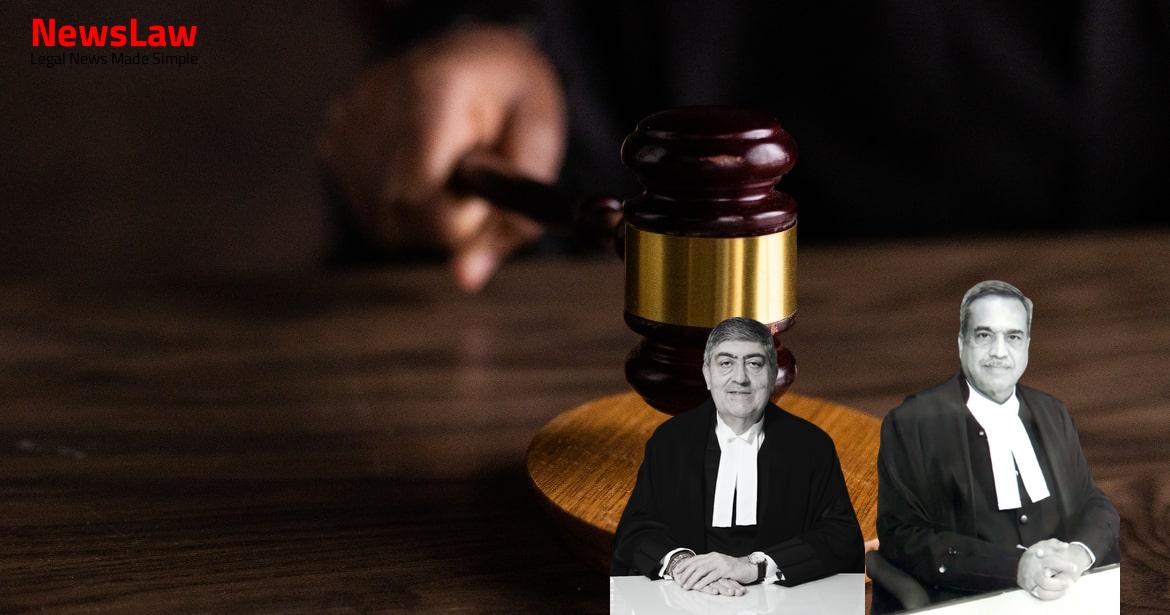In a significant legal development, the Supreme Court has made a ruling on the Civil Appeal filed by Jharkhand Public Service Commission. The case involves the setting of minimum marks for the Jharkhand Eligibility Test (JET) for lecturer appointments in universities and colleges. The judgment addresses issues related to eligibility criteria and decision-making processes. Let’s delve into the details of this important decision.
Facts
- The High Court allowed the writ petition filed by the aggrieved petitioner.
- The Jharkhand Public Service Commission (JPSC) issued an advertisement on 19.07.2006 for the Jharkhand Eligibility Test (JET).
- The JET is conducted to determine the eligibility of candidates for appointment as lecturers in universities and colleges of Jharkhand.
- The test is known as the State Level Eligibility Test (SLET) and is conducted according to UGC guidelines.
- The SLET consists of three papers, with the first two papers being multiple-choice questions answered on an Optical Mark Reader (OMR).
- The appeal filed by JPSC was allowed by the writ court.
- The court emphasized that the Public Service Commission should not have fixed qualifying marks of 60% post-advertisement.
- The High Court dictated that the writ petitioner’s case would be evaluated based on performance.
- No cutoff marks were specified for Paper III by the High Court.
- The court established that once a candidate attains 50% marks, disqualification is not permissible.
- The JPSC was deemed not obligated to adhere to the UGC’s instructions in this matter.
Also Read: Interpretation of Pre-deposit Requirement under SARFAESI Act
Arguments
- Shri Abhishek Vikas, the counsel for the original writ petitioner, argues that the advertisement for the SLET does not mention any minimum cut-off marks for Paper III.
- He asserts that the test is only for eligibility, and having more eligible candidates widens the field of choice.
- The moderation committee, as per Shri Sunil Kumar, determines the cut-off marks for each subject based on various factors, and this decision is not required at the advertisement stage.
Analysis
- The moderation committee is responsible for deciding the cut-off marks in each subject for result declaration.
- Minimum qualifying marks for General/OBC candidates in Paper I and II was 50% as per the advertisement.
- No specific minimum marks were mentioned for Paper III in the advertisement.
- Paper III is a descriptive type question paper specific to the chosen subject.
- The moderation committee determines the level of competence expected from candidates for the lecturer appointment.
- Rules were not changed mid-process; Paper III evaluation is based on minimum qualifying marks in Papers I and II.
- JPSC set a 60% cut-off for Paper III which the writ petitioner did not meet, resulting in ineligibility for lecturer appointment.
- Moderation committees are typically constituted for such evaluation decisions, not fixing qualifying marks.
- High Court’s error in holding that the JPSC could not fix minimum marks for Paper III
- Additional aspect brought in while determining candidate merit for Lecturer appointment
Also Read: Inquiry and Cooperation: NCPCR vs. WBCPCR Judgment
Decision
- The Civil Appeal filed by the Jharkhand Public Service Commission is allowed.
- The Civil Appeal filed by the other side (writ petitioner) is dismissed.
- The judgment of the High Court dated 09.11.2016 is set aside.
Case Title: JHARKHAND PUBLIC SERVICE COMMISSION Vs. MANOJ KUMAR GUPTA
Case Number: C.A. No.-009441-009441 / 2019



